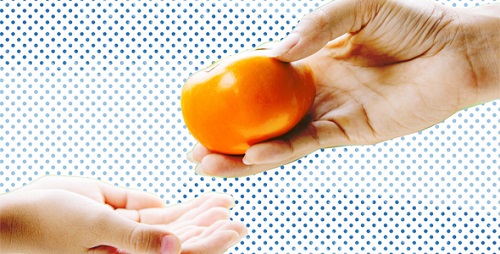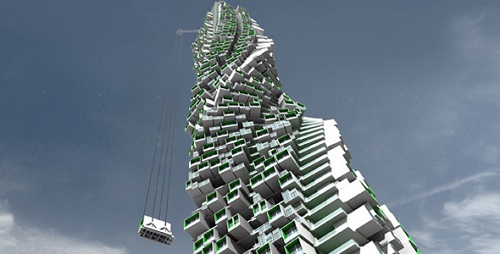
The spread of powerful ideas and system design principles is a most valuable asset for the development of a new economic system. The role of the media and communication technology in this transition is to spread design science to the population. In a open source data economy where all transformational roadmaps and system design ideas are published openly. In this sense public media, business, universities, trade academies, civil society and community groups will have a permanent role in the diffusion and public debate of strategic plans and open information. It is the duty and role of media and
institutionalized education to facilitate this public conversation (Schuldt, 2012). Knowledge shares play a instrumental role in open source economies. Data Clouds invite diverse user transactions to a broad digital network where the internet becomes the classroom of the 21st Century. The exchange of data on the internet is already astronomically diverse and abundant and this activity will explode threefold in the coming years. Examples of this cyber activity are: P2P networks, open source software, open access to research, free books online, royalty free mp3 and free image-sharing with full re-use rights and digital swapping networks like eBay, Esty, B2B, Myspace and others where people sell products and services directly to each other online, earning credits based on transparency and reliability.
The internet is taping into the processing power of millions of individuals. Online collaboration is a form of gift circles where crowd sourcing produces cultural commons like the online encyclopedias Wikepdia, and Appropedia. Online crowd funding or Kickstarter lending can allow individuals to raise money for small business ventures and solutions for their communities. Online crowd lending allows communities of individuals to promote and create their own democratic consensus around important issues, a sort of direct democracy that promotes cultural values and needs close to home (“What is Crowdsourcing,” 2015). Open Source, GPL, Open Data, Open Standards, Creative Commons and the entire Digital Collaborative Movement is a growing gift economy, it is internet centric and a DIT or do it together economy of cybernauts. In our new gift circle economy, over seas products become a rare goods market. In the new economic paradigm externalities and long distance bio-taxation will make these products prohibitively costly. Instead crowd sharing, crowd sourcing and local swapping within communities and city boarders will dominate local markets in a cooperative banking digital system that books time shares and points earned. These economic activities are community based, high yielding, low entropy, low energy dependent and work horizontally to develop well-being, general knowledge, self-reliance and problem solving skills.
ABOUT THE AUTHOR
Carlos Cuellar Brown is a New York City time-based artist and essayist who has written on media art, social theory and metaphysics. He is currently a columnist for Second Sight Magazine out of the Netherlands and blogs here.
|
Blueprint for Change, Part 6:
From Consumers to Stewardship of the Commons /
Reorganization of Industrial Production
Carlos Cuellar Brown
Originally published in Full Insight, 18 May 2015
REPRINTED WITH PERMISSION
Blueprint for Change is an essay divided in 7 parts about how we can create a wiser, healthier and wholesome future. This is Part 6.
|

We must reverse the over-consumption model that puts us at odds with reality. Mass production has accustomed us to the consumption of useless uniform products, we have been brainwashed by the market place to surrender our right to choose wisely, instead we obsessively consume junk and stuff we don't need. Market forces are not necessarily based on the demand of goods and services that are efficient, good for us and intelligently designed, instead we are driven to behave like raptors consuming unnecessary goods and products. The designers of these goods and products, design them with short shelf lives and cheap parts with planned obsolescence incorporated as a market strategy, this traps us in the endless wheel of consumerism that ends up depleting our most vital and valuable resources. Consequence of this culture of excess and its destructive cycle are everywhere like in the land fills of electronic garbage, like in the transistor wastelands and plastic islands that float our seas.
The occupation of the commons with non-reusable and non-recyclable garbage is creating a gigantic collateral disaster, a damage not accounted for in our voracious consumption habits. The new economic model based on stewardship will have to re-examine externalities and address the right scale of goods for production. Technology and innovation is certainly a wonderful asset, a tool that has made our modern lives very comfortable and convenient, however we seem to have disassociated our balance in the ecosystem consuming manically and recklessly. We could be a lot smarter and take innovation and design to another level where the essential and best of what makes us modern is generated and no more. The gadgetry of this economy will be designed and built for longevity, making emphasis on robustness, elegant efficiency, modularity and long useful shelf-life. This will create retro-fitting economies engineered for maintenance and service economics, where we re-frame and edit the need for more and more new extinguishable gadgets and machines.
The industrial apparatus has generated this mass scale production frenzy of irrelevant throw away stuff; junk food is but one expression of this culture. The consumption of this merchandise is conveniently designed by corporations to keep us enslaved and their profits rising exponentially.
Modernity has introduced into our lives many good things; having all the newest electro-domestic conveniences is certainly a gift of this system. We can also build a washing machine that is modular, lasts 25 years and recycles its grey waters, perhaps even creates its own electricity as it torques. This new mentality of maintenance and retrofitting will redefine the way we do business. The pathology of obsessively camping outside smart phone franchisees to get the latest gadget breakthrough technology every 3 months is symptomatic of an unhealthy society. We have been swathed in a labyrinth of disempowering choices designed by the technological market players; they make us addicted to their toys, distracting us while we vicariously live up to the bling bling status that is sold to us. We are constantly measured up against the successful and celebrity types of modern culture. The skin deep make up MTV, Reality TV, Media Hollywood horror show is there to keep us dazed out in a dysfunctional dystopic soap opera glitter house reality. We feel compelled to become this consumer stereotype gobbling more and more of the products that inundate the supermarkets of the West.
Modernity and economic growth has engineered us into infinite consumption and we have forgotten to live within our means, in a steady state economy but at the same time in a renaissance of resourcefulness, a kind of Robinson Crusoisim that will spread development widely. In such modular and retrofitted economies their will be an explosion of motivation and small business interactions, a spirit of innovative community activism will spread. In this sense community building through self-reliance and technological ingenuity will reconsider and design the goods that really make humanity beautiful and magnificent, sharing the tools of progress, towards a perennial gift economy.
Consumerism is person centered, gifts and sharing are centered on other; consumption is about taking away impersonal mass produced goods whereas service and maintenance is about giving back to your community markets, recoiling, reusing, retrofitting and recycling. Have we forgotten that the act of giving is the gift of life itself, and we are on earth not to take but to contribute, we are not here to consume but here for stewardship. This awakening will change our interaction with the commons. In this sense we will have to redefine the word product, to include perhaps designed to last, designed for community lending, designed to be used free of charge and copy-right free. Examples of such products and services are already out there like Free Tool Lending Libraries where a wide variety of tools are loaned in the community free of charge. This exchange activity fosters self determination and builds community (“Power Tools to the People”, 2015). In these systems you can avoid spending on capital that can be shared in community, providing tools for people who need them.
All around the world communities are setting up rental shops, tool libraries, kitchen tools, sporting tools and DIY instruction libraries. Like the millions of DIY YouTube videos that flourish the internet, these community libraries are revolutionizing the way we learn; with weekly power tool talk and hands on workshops that empower individuals with new skills. Access to basic tools and information is catapulting home manufacturing, neighborhood improvement and DIY projects. Open source management software makes it easy to setup and manage rental shops and lending libraries (“Start Sharing,” 2015). With this free software lending libraries can be managed efficiently and independently with automatic web-based systems that check inventory and alert members about availability providing message boards, discussion forums and new arrivals. These new products and tools are enabling communities to gather around creative projects that rescue and reutilize abandoned land and resources. Using tool libraries and creating a new economy of tool sharing, informational resources and retrofitted laboratories for innovation, DIY, DIT and maker communities are changing the world we want to see (“10 Backyard Builders Changing the World”, 2015).
Image: Cafes, retail spaces and entertainment complexes are also scattered throughout the tower to create a neighborhood feel. Although only in the design phase, Unit Fusion could be the solution for integrated vertical living. See Green Building via Inhabitat
ABOUT THE AUTHOR
Carlos Cuellar Brown is a New York City time-based artist and essayist who has written on media art, social theory and metaphysics. He is currently a columnist for Second Sight Magazine out of the Netherlands and blogs here.
|
|Back to TITLE|
Page 1
Page 2
Page 3
Page 4
Page 5
Page 6
Page 7
Page 8
Page 9
Supplement 1
Supplement 2
Supplement 3
Supplement 4
Supplement 5
Supplement 6
PelicanWeb Home Page
|